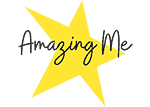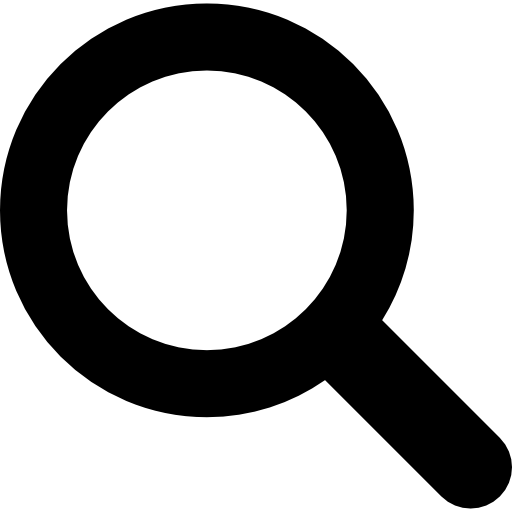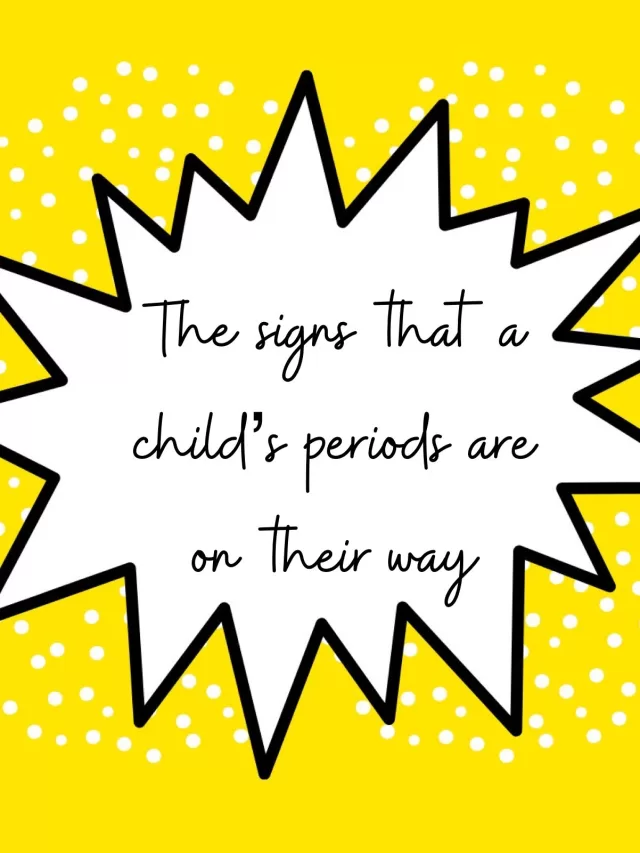I often tell the parents, educators and children that I teach about getting my periods and how traumatic it was. Why? Because I had no idea what was happening to me, let alone being able to know that my body was telling me that my first period was on its way. It would have saved a whole lot of angst that’s for sure, had I known that I was very normal even though I was younger than many girls my age.
For most of the students who I teach when they ask their mums or a trusted adult about when they started going through puberty, they often talk about when they first got their period. But here’s the thing, periods usually happen about 1-2 years after puberty begins and sometimes even more. It’s actually not the beginning of puberty, and definitely not the only thing that happens. So, although we can’t definitely tell our kids the exact time and day that their periods are going to start, their body will give them signs that their periods are on their way.
Here are the signs your child is about to start their period within the next couple of years. (not necessarily tomorrow, and not 100 per cent always in this order)
Breast buds and breast development
Breasts will start and continue to grow for up to two or more years before periods begin. Breast buds are a small lump under the skin and behind one or both nipples about the size of a five-cent piece. The part around the nipple (areola) will start to stick out (enlarge). Although the lump is hard, it can feel sore, tender and get itchy as the breast continues to grow. Breasts don’t necessarily develop evenly and that’s a reason why we need to educate and reassure our kids that just like one foot is bigger than the other, our breasts might be too. They do not need to worry about this because as they continue to grow, they tend to catch up to each other.
Pubic hair, underarm hair and body hair gets thicker
Androgens, are a group of hormones released during puberty and are responsible for starting hair growth. Hair starts to grow around the pubic area first and also under arms and thicker overall body hair. It’s often fine and soft at the beginning and over time grows and covers more of the vulva. It gets coarser thicker and curlier.
Growth spurt
Often your child’s biggest growth spurt is about 6 to 12 months before they get their first period but it can be longer or shorter. So, if you notice that it’s like they’ve grown in their sleep, they probably have and their periods may be on their way.
Discharge or cervical fluid
Generally, 6-12 months before their first period but it can also be longer, they may notice a thin, sticky even thick substance in their undies, or on the toilet paper, it may also feel a little wet between their legs. This is called discharge and a very healthy sign that their bodies are doing what they are meant to be doing. It can be the consistency of egg white and can vary in colour, ranging from clear to white or off-white or even a little yellowish.
Most of the time they don’t need to wear a panty liner or period undies but if it gives them more confidence then that might be a great idea. If they notice it’s happening more often, then this might be a sign that their periods are on their way. Please note that if they notice a really strong odour or a change in the colour of their discharge it may be a sign of a vaginal infection, so see a doctor. Actually, if you are worried, or have a question check with your doctor anyway.
Other signs
Other signs that your child’s periods are on their way might also be PMS symptoms like cramps, pimples, mood swings, irritability, tiredness, body odour and weight gain. These signs are-NORMAL!!
Periods can be genetic, however don’t necessarily rely on this as an indicator as puberty is now going for longer and generally starting at an earlier age.
Above all your child needs to know that everyone is different and even though the signs are often the same they happen at different times and in different ways. Even though the average age of many kids first period is 12 it’s important that your child knows that we are all unique and different and that even if they are 8 or 16 when they begin, that this is normal for their bodies too (but do check with your doctor if you are worried).
Let’s face it, periods are not always easy, your child will need support. So, reassure your child that they are amazing and that their bodies are too. Also get excited and be positive as this can affect their confidence and the way they cope and are empowered throughout their lives.
Tip: read my blogs about the best period products for teens and the best period undies for teens.
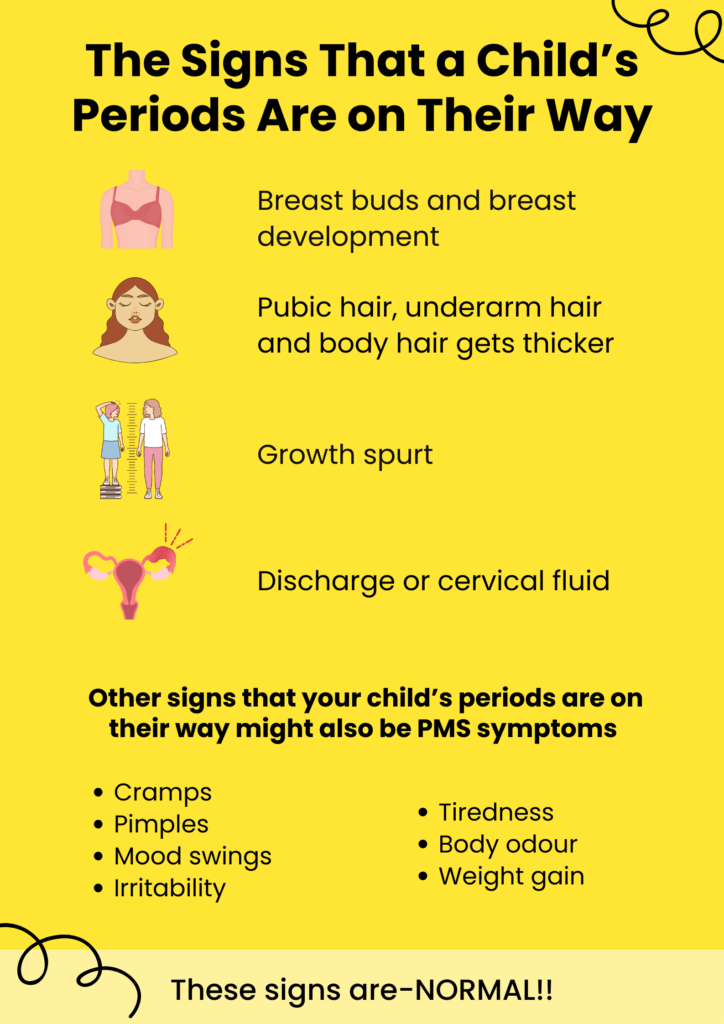
What’s the Big Deal About Puberty is my interactive online course about puberty.
This puberty course is ideal for both parents/carers to do together with their pre-teens aged 9-12 years. This can also be completed by your child on their own.
Click below to buy the course for only AUD $69.
Books about periods
There are a lot of parenting books that help you start positive conversations with your tween daughter about her first period. Below are a few books I recommend. Click on either one of the photos to read my book review.
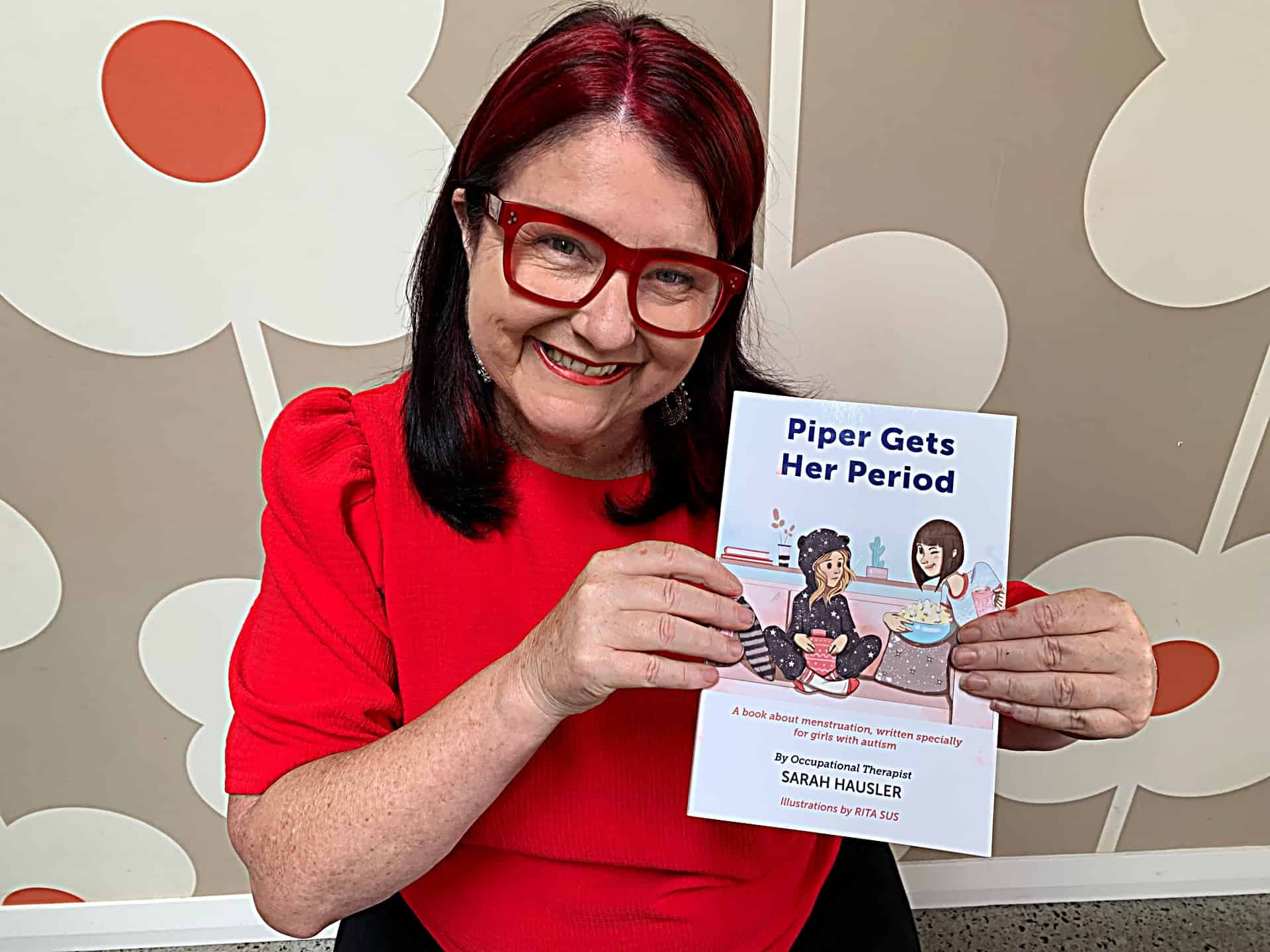
Piper gets her period
Click here to read my book review
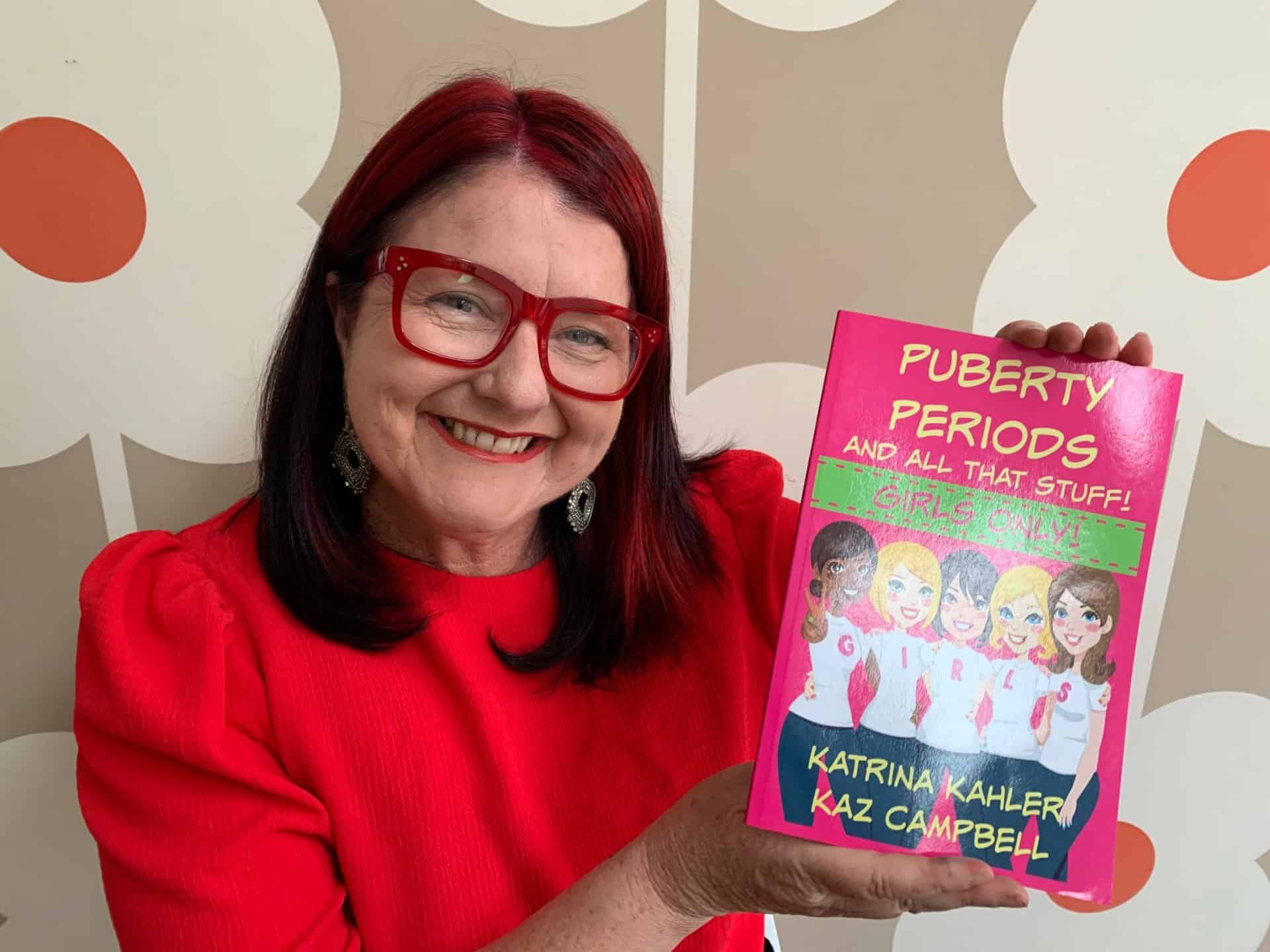
Puberty, periods, and all that stuff
Click here to read my book review
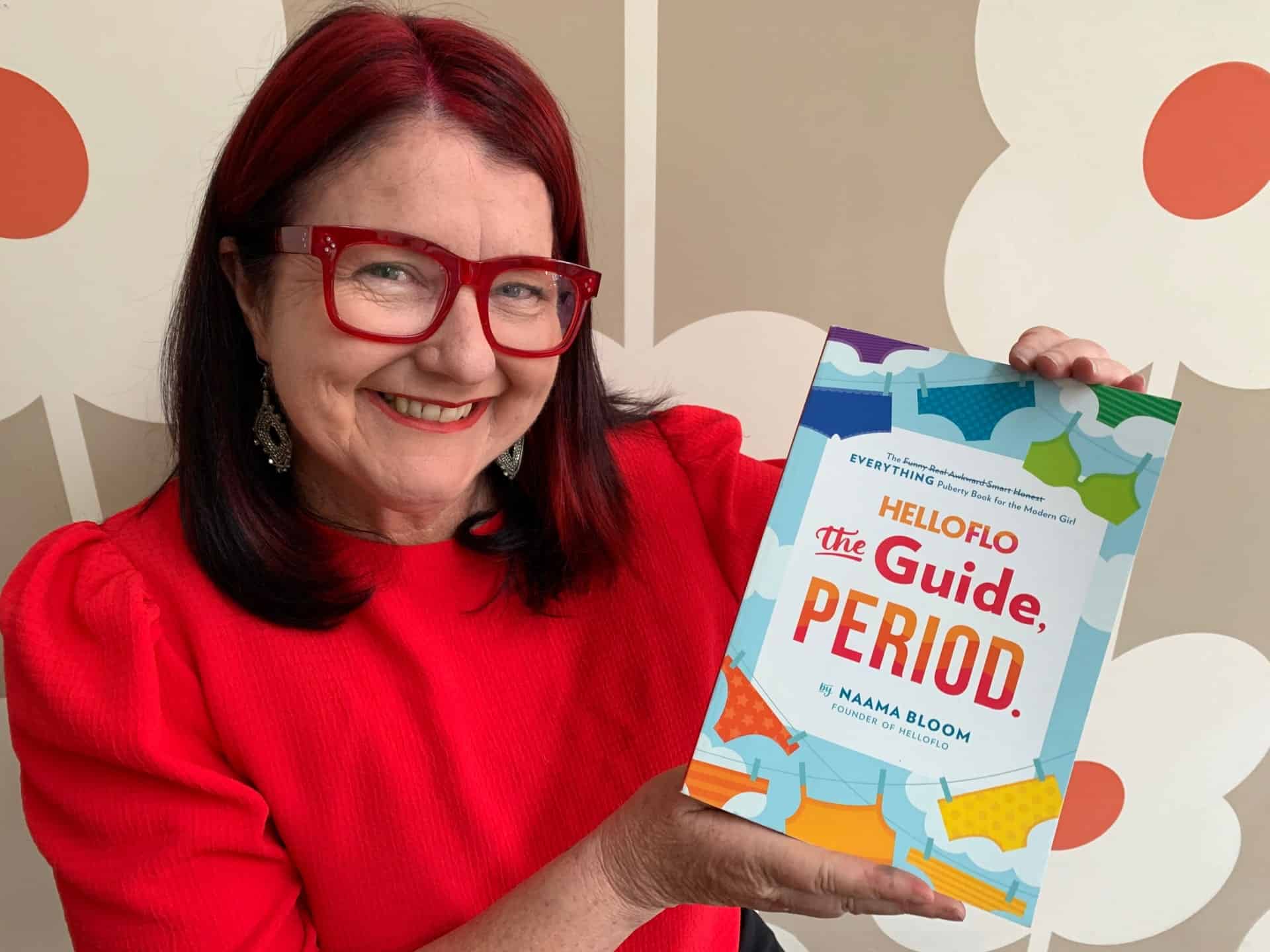
Helloflo; The Guide. Period.
Click here to read my book review
